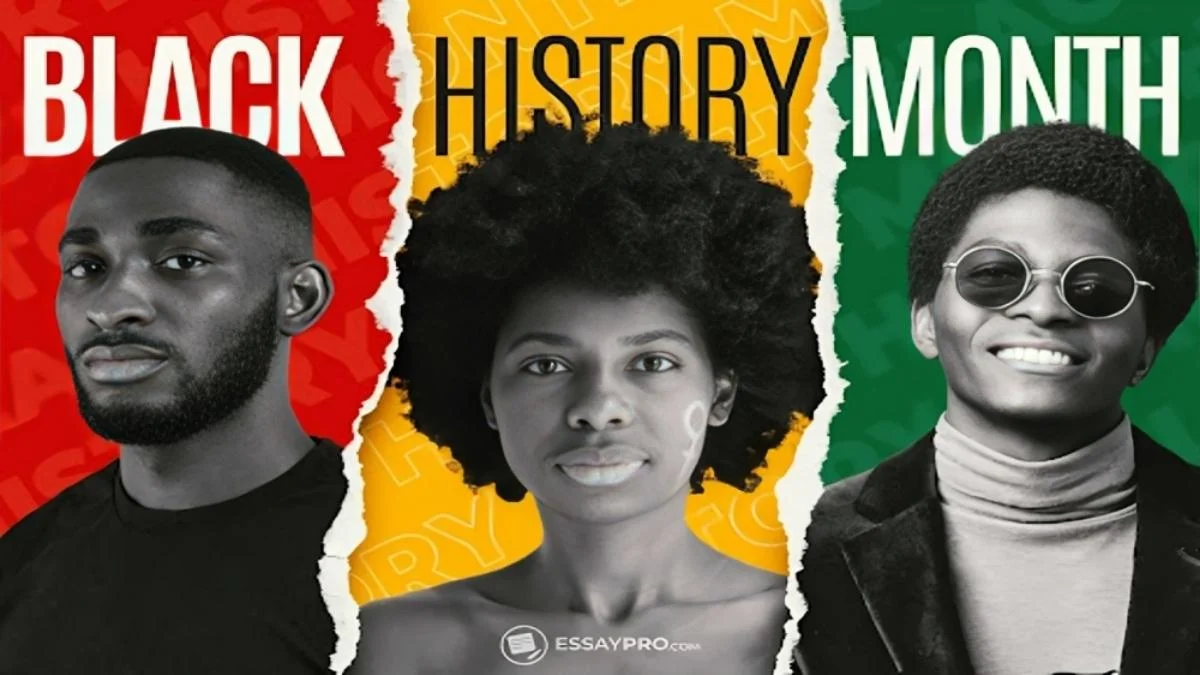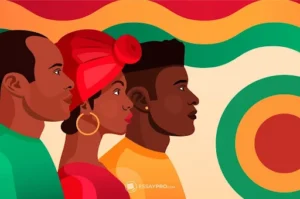GENERAL
Black History Month 2025: Celebrating Black Educators Who Made a Difference

So, what is Black History Month? Black History Month is a time to celebrate the achievements of Black leaders in education, civil rights, and more. It’s all about recognizing those who broke barriers and made lasting changes. Black educators, in particular, have played a huge role in shaping schools and inspiring students.
By learning their stories, we gain powerful lessons on courage and progress. Plus, their impact continues to shape our world today.
This article, with help from EssayPro—a reliable resource for students—dives into the incredible contributions of these educational trailblazers. Keep reading to learn more!
When Is Black History Month 2025?
Black History Month is celebrated every February in the USA to honor the contributions of Black leaders in history. It’s also observed in other countries, such as Canada (also in February) and the UK (in October).
Originally, this celebration began in 1926, thanks to historian Carter G. Woodson. It was created to highlight the often-overlooked achievements of Black Americans. As its significance grew, it expanded into a month-long event in 1976, cementing its place in cultural history.
Today, Black History Month continues to inspire learning and reflection on progress and equality.
Why Is Black History Month in February?
February was chosen for Black History Month to honor the birthdays of two influential figures: Abraham Lincoln (February 12), who issued the Emancipation Proclamation, and Frederick Douglass (February 14), a former enslaved person turned powerful abolitionist and speaker.
Carter G. Woodson, known as the “Father of Black History Month,” selected this month in 1926. His goal was to ensure that Black history became a recognized part of mainstream education.
Over time, this week-long event grew into the month-long celebration we know today, dedicated to honoring the contributions of Black individuals in history.
Colors and Their Meaning
The Black History Month colors carry deep symbolic meaning:
- Red represents the bloodshed and struggles for freedom and justice.
- Black stands for the strength, unity, and resilience of Black communities.
- Green symbolizes hope, growth, and prosperity.
- Yellow reflects the wealth and rich cultural heritage of the African diaspora.
These colors are more than decorations—they’re reminders of history and progress. Students can honor Black History Month by displaying these colors in February as a way to show respect, solidarity, and support for this important celebration of heritage and resilience.

How Students Can Show Honor and Respect
Here are meaningful ways students can celebrate Black History Month 2025 USA and deepen their understanding:
- Join Events: Attend school or local discussions, panels, or virtual events that highlight Black history and culture.
- Read Black Authors: Explore works like Their Eyes Were Watching God by Zora Neale Hurston or Between the World and Me by Ta-Nehisi Coates to gain new perspectives.
- Create a Museum Walk: Display photos, quotes, and artwork that reflect key moments and leaders in Black history.
- Celebrate Through Music: Share and listen to music by influential Black artists from different eras.
- Write and Research: Craft essays or research papers on notable Black educators and changemakers.
If academic writing feels overwhelming, services like EssayPro offer essay writing, research paper assistance, and editing support. Using reliable resources can help students save time, which is talked about in almost any EssayPro review.
Black History Month 2025 Theme in America
What is the theme for Black History Month 2025? It’s “African Americans and Labor.” This theme highlights the essential contributions of African Americans to the U.S. workforce throughout history.
Leaders like A. Philip Randolph, who championed fair wages and better working conditions, played a key role in improving workers’ rights and advancing civil rights. Randolph’s efforts led to historic changes, like the desegregation of defense industries and the fight for union equality.
However, despite progress, challenges such as wage gaps, job discrimination, and underrepresentation in leadership roles still exist. These ongoing issues remind us that the pursuit of workplace equality isn’t over.
Students can honor this theme by learning about the history of African American labor contributions and using that knowledge to advocate for fairness and diversity in their future careers. Understanding the legacy of these leaders is an inspiring way to work toward a more inclusive workforce.
Inspirational Stories of Black Leaders in Education
Black leaders in education have inspired countless students to pursue careers in teaching, activism, and leadership. It encourages reflection, learning, and the celebration of diversity within schools and universities.

Explore the stories of three influential Black educators whose impact continues to shape the future of education and equality.
Advocate for Education and Civil Rights
Mary McLeod Bethune, founder of Bethune-Cookman University, dedicated her life to education and civil rights. She believed that education was the path to freedom and equality. Her work not only opened doors for Black students but also inspired future generations to use knowledge as a tool for lasting change.
Champion of Vocational Education
Booker T. Washington, a prominent educator and author, played a crucial role in shaping vocational education. As the founder of Tuskegee University, he emphasized self-reliance and the importance of practical skills for economic progress.
His legacy continues to inspire reflection during 2025 Black History Month, honoring his lasting contributions to education.
Pioneer in Education Reform
Marva Collins, a groundbreaking teacher and education reformer, founded Westside Preparatory School in Chicago to provide high-quality education to underprivileged students.
Her innovative teaching methods and unwavering belief in her students’ potential transformed countless lives, making her a powerful symbol of educational excellence and reform in underserved communities.
Honoring Black History in 2025
Students can honor Black History Month by learning about influential Black leaders in education and applying their wisdom to their own academic journeys. Participating in Black History Month events 2025—such as writing competitions, museum visits, and cultural discussions—provides a meaningful way to engage and reflect on their contributions.
Immersing yourself in these activities not only deepens your understanding but also fosters a greater appreciation for diversity and resilience.
As Marva Collins once said, “Success doesn’t come to you—you go to it.” This powerful reminder shows how education remains a vital tool for personal growth and change.
-

 BIOGRAPHY9 months ago
BIOGRAPHY9 months agoBehind the Scenes with Sandra Orlow: An Exclusive Interview
-

 HOME1 year ago
HOME1 year agoDiscovering Insights: A Deep Dive into the //vital-mag.net blog
-

 HOME1 year ago
HOME1 year agoSifangds in Action: Real-Life Applications and Success Stories
-

 BIOGRAPHY1 year ago
BIOGRAPHY1 year agoThe Woman Behind the Comedian: Meet Andrew Santino Wife




























